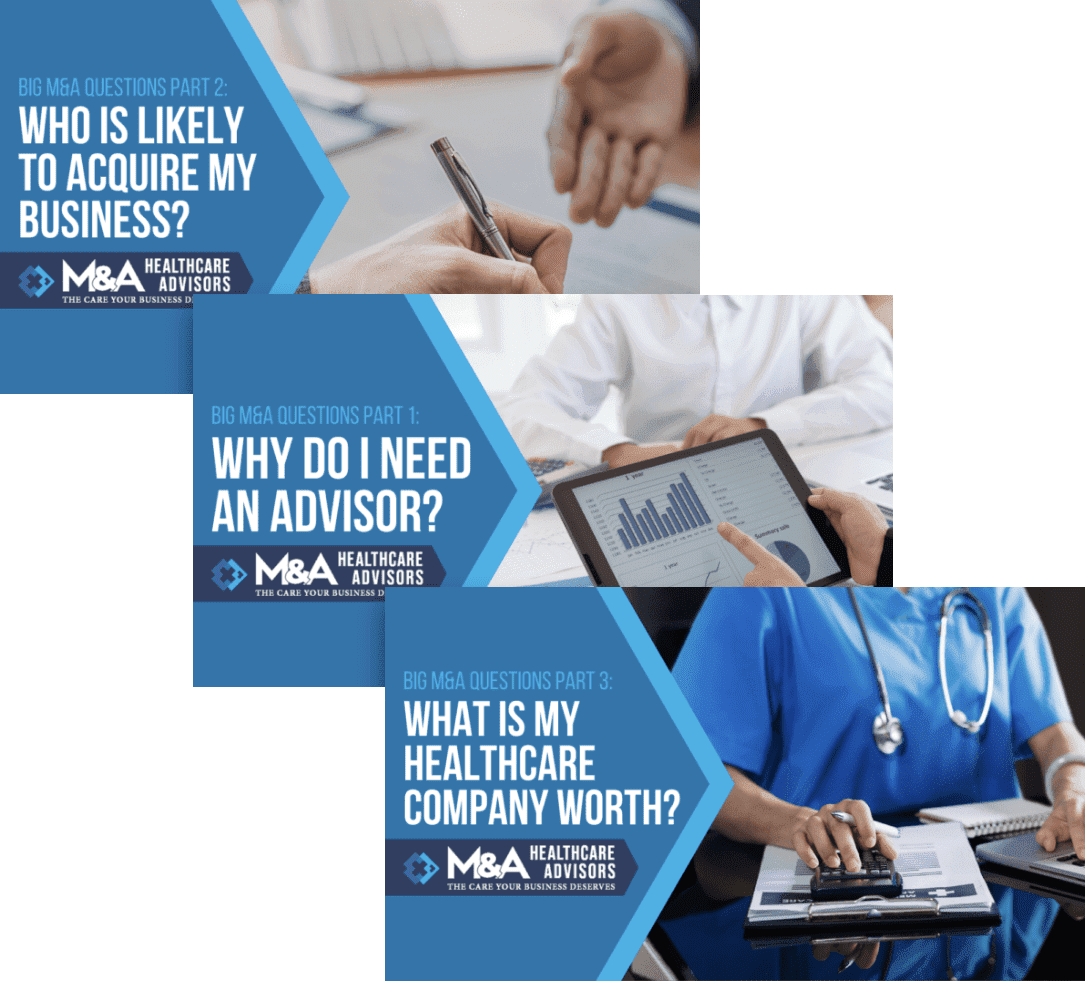As we celebrate our three-year anniversary, our team has taken the time to reflect on lessons learned and successes we’ve accomplished, the challenges we’ve faced, and the lessons we’ve learned at M&A Healthcare Advisors. Our experience has shown that success in this dynamic sector depends on several key factors including expert guidance through an ever-increasing regulatory environment, the necessity for thorough preparation before entering the market for a sale, and the consistent demand for quality healthcare assets, irrespective of macro-economic M&A trends.
Here are a few of the main lessons we’ve learned in our first few years as a firm:
The Importance of Compliance in a Heavily Regulated Industry
Healthcare M&A exists in two highly regulated environments – healthcare and finance. Over the past three years, we’ve seen an increase in transactional scrutiny from both state and federal regulators. Throughout this year, we have continually emphasized the importance of having experienced M&A and legal support on your side, as transactional and healthcare regulations become increasingly complex. A thorough understanding of the compliance landscape is essential to mitigate your risk and avoid costly penalties or delays during a transaction.
One of the ways to most effectively do this, is to partner with a qualified intermediary when selling your healthcare business. Investment banks, like M&A Healthcare Advisors, are well-versed in transactional structures and SEC requirements, ensuring all facets of the transaction process remain within the defined structures of the governing bodies. Additionally, our team has intricate knowledge of market trends, buyer networks, and regulatory deal structures that are critical to reach a successful outcome.
A common pitfall we've observed in the market within the last 3 years are the common risks of working with non-registered intermediaries. While these intermediaries may appear on the surface as cost effective method of selling a business, non-registered intermediaries have the potential to bring about greater risk and cost to a seller in the long run. Working with non-registered intermediaries can expose sellers to significant legal risks both during and after the conclusion of a sale. Working with a registered and experienced advisor should be a top priority for those looking to sell their healthcare business.
The Necessity of Thorough Preparation Before Going to Market
Preparation is everything in M&A. A seller could have a highly profitable business with tenured management in an attractive geography -- but if their operational, legal, financial, and clinical documentation is not readily available or in a reliable and accurate order, their ability to meet buyer data requests and maintain their leverage in a negotiation are significantly diminished. By no means is a disorganized business unsellable, but a seller should not expect to receive offers in line with the height of the market.
As we covered earlier this year, before going to market it is essential to have all your financial, clinical, and operational records in order. This involves reviewing financial statements to ensure accuracy and reliability, organizing clinical data to confirm adherence to regulatory requirements, and ensuring there is a strong understanding of any potential liabilities that could come up in a sale process. The better prepared your business is, the smoother the transaction process will be, and the higher your chances of securing a favorable deal.
We recommend, as a first step, the establishment of a robust deal team consisting of financial, legal, and clinical experts. Each member plays a crucial role in ensuring a successful transaction:
1. M&A Advisory Support
- M&A Advisors assist with identifying and building a deal team to best reach the unique M&A goals of every client. Their main role is to manage the intricacies of the sale process to allow the seller to focus their attention on what is most important, which is maintaining or ideally, growing, their business.
- Financial experts thoroughly analyze your business’s revenue streams, profit margins, and financial records to present a clear, attractive picture to potential buyers.
3. Legal Advisors/Transactional Attorneys
- Transactional Attorneys navigate complex healthcare regulations and ensure compliance, mitigating risks related to contracts, disputes, or regulatory oversight.
- Clinical experts evaluate your business’s clinical operations, ensuring that patient care standards, compliance with healthcare laws, and clinical reporting are well-documented and organized for buyers.
Having a well-rounded team that is collectively working to prepare for a sale process, can maximize your chances of success and reduce your risk of any unexpected challenges that could occur.
Healthcare M&A Market Shifts: Quality Assets Remain in Demand
While the M&A market is always shifting, one constant remains: the demand for quality healthcare assets. Many of the lessons we’ve learned reinforce that buyers are looking for businesses with stable or growing financial metrics, clean clinical records, and strong operational structures. Buyer scrutiny in due diligence has continued to increase and costly analysis, like a Quality of Earnings, has become common place in every transaction. By having a strong grasp of the main components of your business and business practices, you can best meet the needs and requests of interested buyers.
One of the ways you can best demonstrate yourself as a ‘quality asset’ in the healthcare M&A market is to review and have a thorough grasp of the following:
1. Financial – Be certain of your numbers
- Necessary: Reliable financial statements are a must!
- Highly Recommended: Increase value by involving a Sell-side Quality of Earnings/Accounting Firm to ensure financial metrics and stable margins
2. Clinical – Know your patient intake and care policies
- EMRs and charting must conform to regulations
- Increase value by conducting EMR review with clinical consulting specialists
3. Legal – Disclose all of your potential exposure
- Assess regulatory hurdles and essential contracts
- Retain an M&A / healthcare transaction attorney early in the process
4. Operations – Most importantly, keep your business operating at the highest level
- With thorough preparation, your transactional team can minimize deal distractions so you can care for your business
Reflecting on our experiences over the last three years , we understand what it takes to reach a successful outcome. From compliance and preparation to working with experienced professionals, these lessons are key to maximizing your business's value. As the market evolves, one thing remains clear: well-prepared, high-quality assets will always be in demand.
Frequently Asked Questions
1. Why is compliance so critical in healthcare M&A?
Compliance ensures that transactions align with both federal and state regulations, preventing legal issues that could delay or derail deals.
2. What is the role of an investment bank in selling a healthcare business?
Investment banks provide expertise in market trends, deal structuring, and buyer networks, which are vital for achieving a successful and compliant transaction.
3. How can M&A Healthcare Advisors help prepare my business for sale?
We help you work with a comprehensive team of experts in the financial, legal, and clinical aspects of going to market, ensuring that your business is fully prepared for a smooth and successful transaction.Ready to Learn More?
M&A Healthcare Advisors is here to guide you, throughout the selling process.




